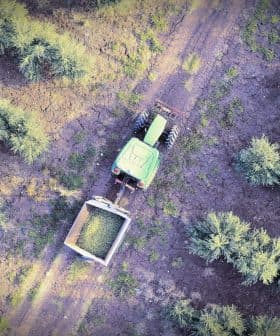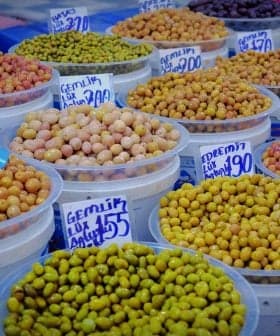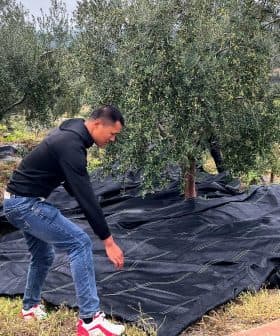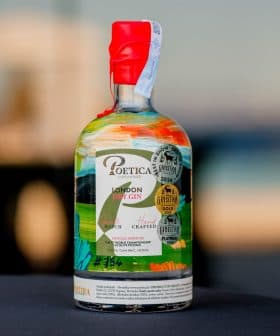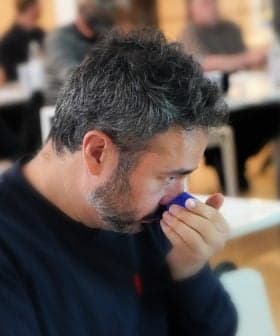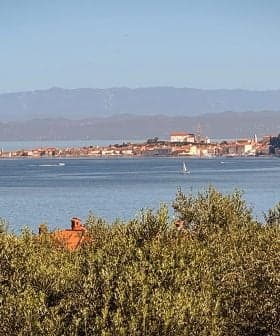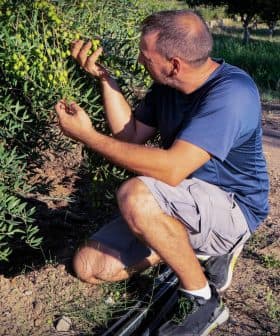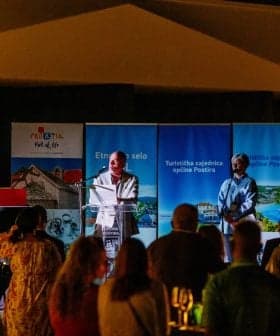Southern Italy's Producers Shine in Early NYIOOC Results
Among the first winners of the 2020 NYIOOC World Olive Oil Competition are farmers from Campania, Puglia and Sicily.
 Mimma, Dina and Carmela Bruno at Sololio Cooperative
Mimma, Dina and Carmela Bruno at Sololio CooperativeThe NYIOOC World Olive Oil Competition showcased the quality of extra virgin olive oils from committed producers, with Southern Italian farmers like Sololio, GangaLupo, Petrazzuoli, and Valle dell’Inferno Family Reserve standing out as early winners. These producers have demonstrated dedication to their craft, with some utilizing centuries-old plants and unique microclimates to produce award-winning olive oils.
Part of a continuing series on the winning producers.
The eighth edition of NYIOOC World Olive Oil Competition is one adapted to these times, characterized by substantial innovations including an advanced remote-judging system and the unveiling of results through an interactive presentation on the official website that allows producers and the public to follow the awards as they unfold.
Despite these shifts, the quality of extra virgin olive oils submitted by committed and passionate producers has been on display once again through the awards, and among the first winners revealed, several Southern Italian farmers stand out.
“We are so glad to have received this important recognition,” Marcello Palumbo of Sololio said after the announcement that Delia Audace had earned a Gold Award for the third year in a row.
The Sololio cooperative, where Palumbo is in charge of production, began in 2004 from the initiative of three sisters — Dina, Carmela, and his wife Mimma Bruno — who represent the third generation of a family of producers.
In Ostuni, in the province of Brindisi, they manage a 50-hectare (124-acre) grove composed of 2,500 centuries-old plants and 4,000 younger ones. “Despite challenging climatic conditions, we have been able to reach our usual levels of production,” the farmer noted, specifying that Ogliarola, Coratina, and Cassanese gave exceptional results, and the two latter have been blended to obtain the award-winning Delia Audace.
“This result brings gratification to our hard work in the field and in the mill,” Palumbo said, explaining that the company runs a facility dedicated to their own olives as well as those of selected producers, which meet high-quality standards. The position a few kilometers from the groves allows them to crush the fruits without delay.
Further north, on the seafront of Bari, the Girone-Bisceglie family is celebrating the achievement of the second consecutive Gold Award for their monovarietal GangaLupo.
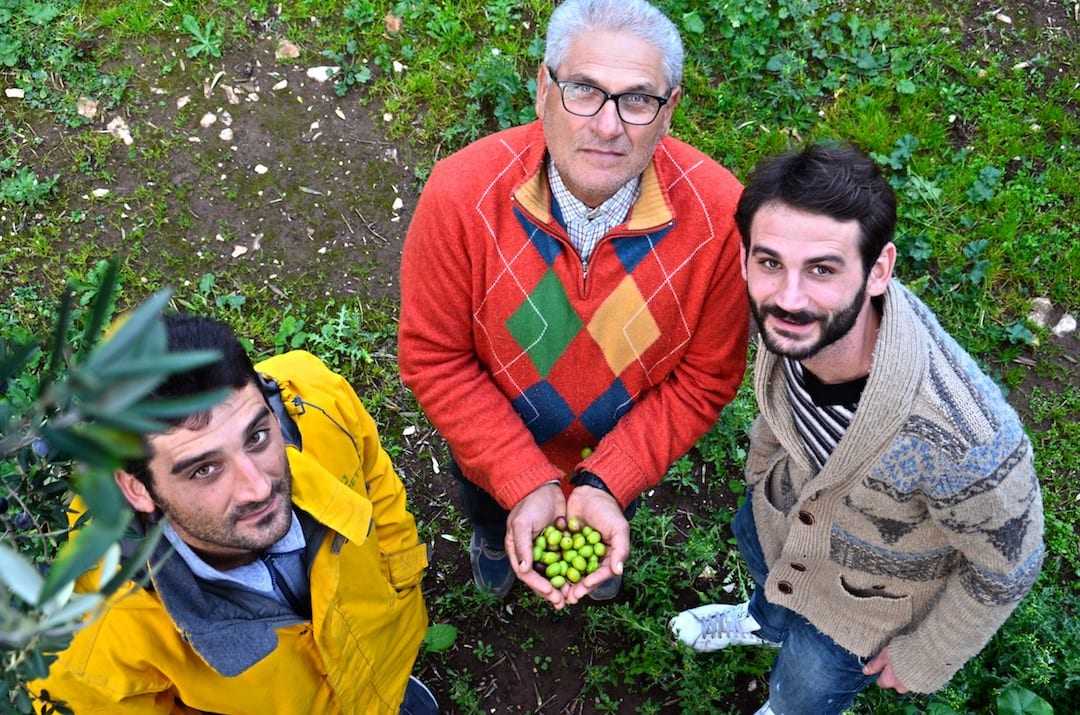
Luigi, Michele and Vito Girone at GangaLupo farm
“We are so happy about this award,” Vito Girone told Olive Oil Times. “For three generations, we have been working in the agricultural sector developing techniques and farming processes always aimed at both efficiency and sustainability, and this award represents a recognition of our commitment.”
Their grove of 4,000 plants, most of which are centuries-old, is located in the flat area of Santo Spirito, overlooking the Adriatic Sea.
They specialize in the cultivation of the Coratina variety. A few years ago, after a long history of wholesaling olives, the family decided to dedicate its activity exclusively to the transformation of fruits and the production of high-quality extra virgin olive oil.
“The last harvest was very good,” Girone pointed out. “Fundamental was the work of my brother, Luigi, who takes care of the organoleptic and chemical aspects of our product and the land management, as well as the advice of the expert Alfredo Marasciulo, who followed us from harvest to bottling.”
A Gold Award was welcomed in Campania, in the town of Ruviano — an acknowledgment of the quality of Fontana Lupo extra virgin olive oil, produced at the Petrazzuoli farm.
“We are very delighted with this result,” said Giovanni Petrazzuoli, who manages an olive grove nestled in the Caiatine hills in the beautiful and unspoiled territory of the Matese Park.
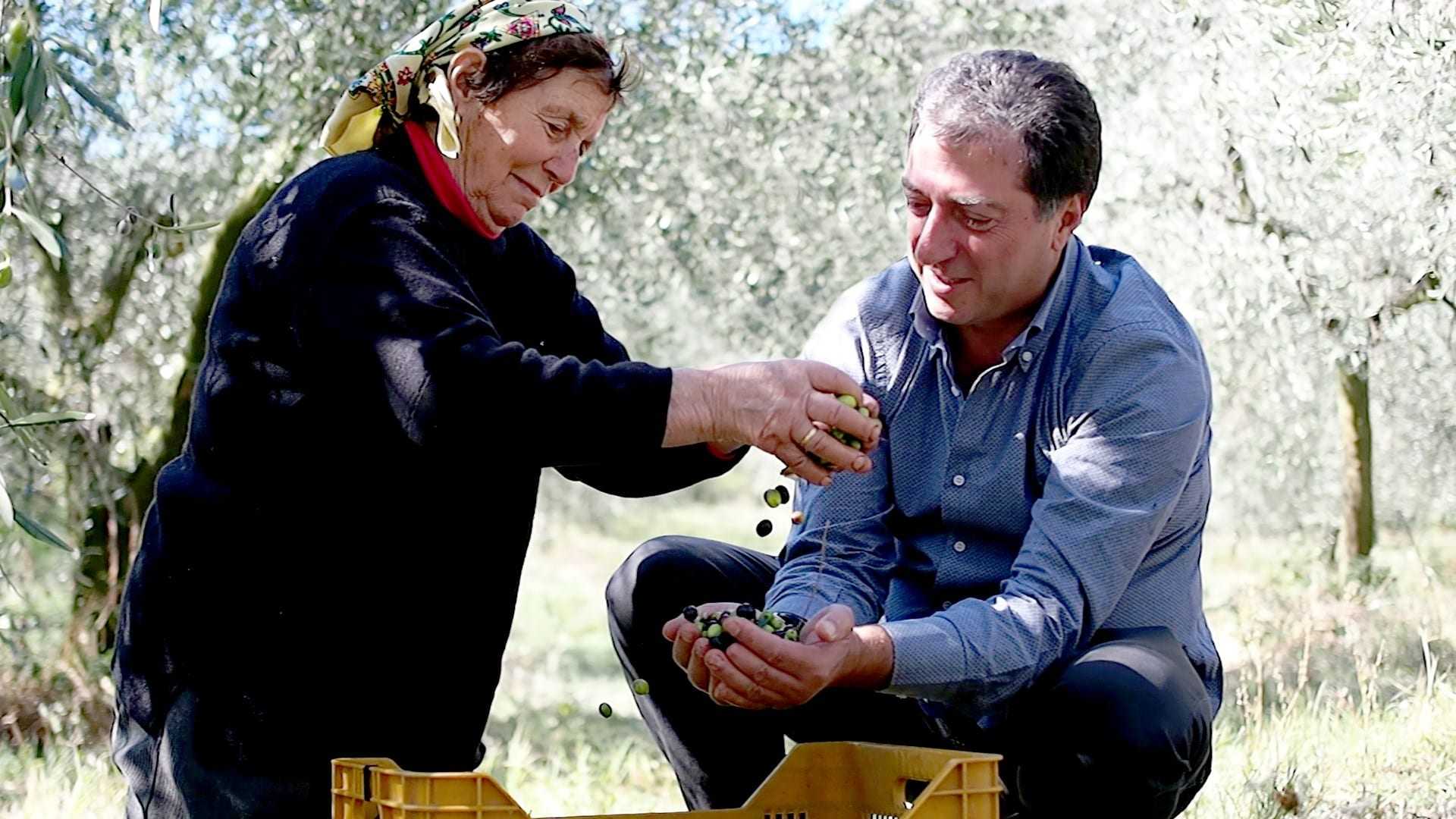
Giovanni Petrazzuoli and his mother at Petrazzuoli farm Fontana Lupo
“We have about 2,000 plants of different varieties, including Caiazzana — an ecotype grown in this areas for 3,000 years — then Ortice, Frantoio, and Leccino, and some Ravece recently planted,” the farmer explained, adding that the proximity of huge wooded areas preserves an absolutely pollution-free environment.
In the past, during dry summer months, the wolves who lived in the surrounding woods came to drink from an ancient fountain located near the orchard – hence the name of Fontana Lupo, which literally means Fountain Wolf. During World War II, the particular tunnel structure of the fountain served as a hiding place during Nazi roundups and saved many lives.
“We define ourselves as custodians of this territory and its beautiful history,” Petrazzuoli told us. “I was born on this farm and followed in the steps of my grandfather and father in caring for our lands, trying to get the best out of its fruits.”
In Cammarata, in the province of Agrigento, Valle dell’Inferno Family Reserve celebrates its third award in a row at NYIOOC, confirming itself among the Sicilian olive oil treasures.
“I believe that the main merit of this achievement goes to the land from which the quality of our extra virgin olive oil originates,” Pasquale ‘Mimmo’ Marino, co-founder with his wife Gabriella Giambrone of the Magihouse farm, told Olive Oil Times.
Their orchard is located in a hilly area at 350 meters (1,148 feet) of altitude, in the ‘Valley of hell,’ which takes its name from the strong temperature differences between day and night amplified by the seasonal trends.
Plants of Cerasuola, Nocellara del Belice, Tonda Iblea, Biancolilla, Nocellara Etnea, and Passulunara enjoy this unique microclimate that enhances the level of biophenols and the aromatic components in the fruits.
“Our olive trees grow in clayey soils with a strong sandstone component,” the Sicilian farmer explained. “This land is very mineral, colloidal, keeping the humidity of the ground even during warm months. For this reason, our plants not only survive but also give a great extra virgin olive oil, whose quality pushes us to enhance and preserve even more strongly this unique environment.”
A Sicilian extra virgin olive oil from the southwestern coast of the island obtained recognition. “We are happy not only because of the prestige of the award but also since we are flanked by the best olive oil brands in the world,” said Francesca Planeta, after receiving a Silver Award for Planeta Traditional. “This award is even more appreciated because, after some complex years due to climate issues, we had a very good season, both quantitatively and qualitatively, which allowed us to reap the rewards.”
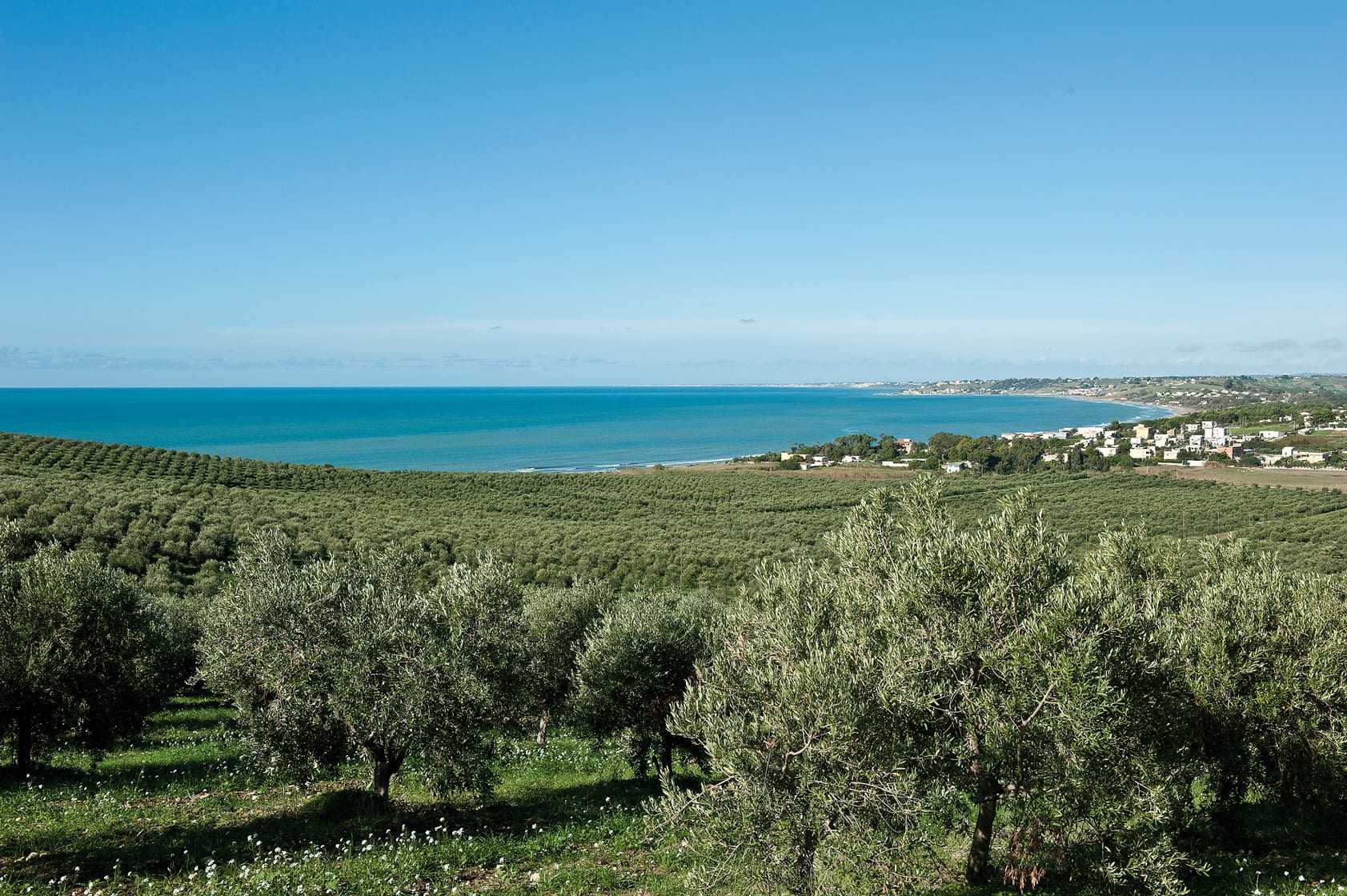
Planeta Capparrina estate
In Sicily, her family has been producing wine and olive oil for generations. Committed to enhancing the territory and protecting the environment, they have chosen to dedicate the Capparrina estate, in the province of Agrigento, to the production of their oils obtained by the native varieties Nocellara del Belice, Biancolilla, and Cerasuola.
In a place of great biodiversity, their 150-hectare (371-acre) olive grove lies on gentle hills sloping down to the beach of Porto Palo di Menfi.
“Despite these difficult times, there has been a rediscovery, a growth in the use at home of quality extra virgin olive oil,” Planeta considered. “I like to believe that people had time to get to know it better, taste it with care and attention, and appreciate it in all its aspects, treasuring this awareness for the coming months,” she said.
“At this moment, this award takes on an even more important significance.”


